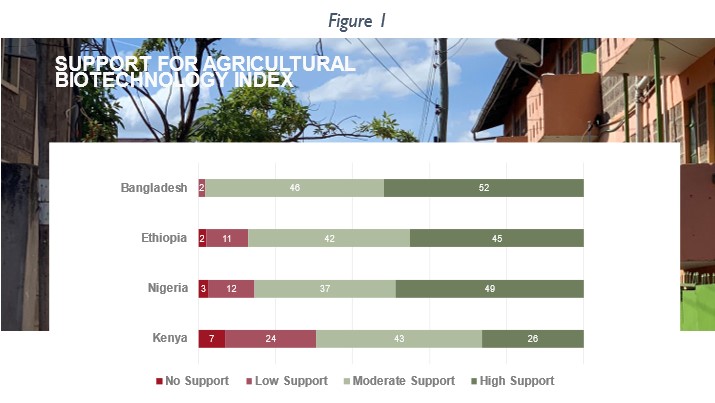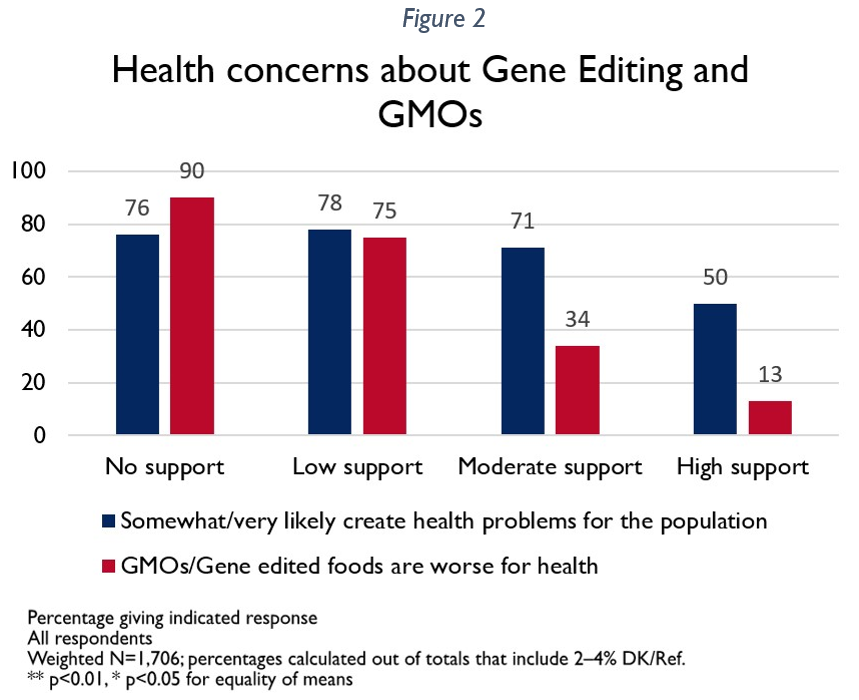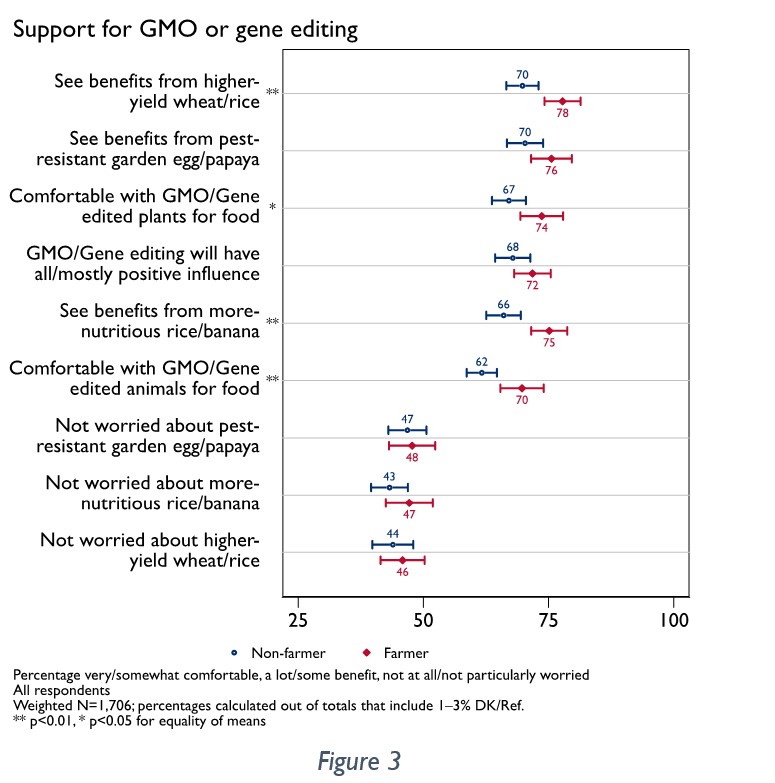While African and Asian nations are struggling against the effects of climate change, agricultural biotechnology provides a possible solution to offset vulnerabilities and hardships. Countries in these regions are key stakeholders in the global agricultural system, yet they increasingly face climate-related devastation. According to the International Monetary Fund, one third of the world’s droughts occur in sub-Saharan Africa.. Kenya, for example, has seen a 70 percent decline in crop production due to a two-year drought.
Agricultural biotechnology provides a potential solution to offset these hardships. However, many African and Asian countries have strict restrictions on agricultural biotechnology, including the incorporation of genetically modified organisms (GMOs) into the food market. In Bhutan, for example, the Biosafety Act of 2015 contains provisions against GMOs. Countries like Tanzania and Uganda have similar laws in place.
To understand the causes and effects of these policies, ORB conducted a large scale nationally representative survey in 2019 on attitudes and perceptions towards agricultural biotechnology in low- and middle-income countries, including in Kenya, Ethiopia, Nigeria and Bangladesh.

Overall:
- Popular support and awareness of agricultural biotechnology varied from country to country. ORB’s survey found that Kenya showed the lowest level of support, in comparison to Nigeria, Ethiopia, or Bangladesh (Figure 1).
- The general public was largely unaware of agricultural biotechnology: over a third of Kenyans reported unfamiliarity with the terms ‘genetically modified organisms’ or ‘gene editing’.
- Education levels, gender, health concerns and religious beliefs are all factors that affected the approval of using agricultural biotechnology. For example, less than half Kenyans with no formal education saw benefits to the technology (41.5%), compared to about three quarters of those with higher levels of education (70%). Women also rejected them at a higher rate than men (2.5%).
Further Barriers to Support
Health concerns are common across all demographics. Those with higher levels of education tend to be less concerned; however, even those who support Ag. Biotech hold reservations. In ORB’s study, 50% of those in the ‘high support’ group expressed GMO-related health concerns (Figure 2).

Religion also influenced views on agricultural biotechnology. One in three Kenyans believe that Ag. Biotech foods are not compatible with their religious customs. Half of Kenyans support religion over science, contributing to high levels of caution around GMOs and Gene Editing.
Support for Agriculture Biotechnology
Despite the general public’s lack of awareness for GMOs and expressed concerns, there are some groups of more enthusiastic supporters. For example, ORB’s study showed that farmers in Kenya have slightly higher levels of support on each use of GMO or gene editing technology – on average 5-8% of farmers say they see the benefits and are more comfortable with these technologies than the general population (Figure 3).
Similarly, those who see the benefits of GMO/Gene editing technology for environment, economic stability, and quality are generally more supportive of use of Ag. Biotech. In particular, Kenyans who see GMO/Gene editing technology as having a positive impact on climate and environment score 11.9% higher on the Support of Ag. Biotech Technology Index.
Moving Forward
In October of 2022, Kenya lifted its ban on genetically modified crops to help counter the effects of historic droughts and climate disaster. Other countries that want to follow suit, ORB has found, should reframe the conversation to emphasize the positive impact of Ag. Biotech on food security and the environment to increase support for these technologies. It is also important to engage with community religious leaders to combat the perceived incompatibility between agriculture biotechnology and religion. Building a community of trust between religion, science, and food security can lower barriers to support for agriculture technology. Increasing public perception of agricultural biotechnology in African and Asian countries in these ways can strengthen our global agricultural system as we fight against the effects of climate change.
______________________________________
https://www.wired.com/story/kenya-gmo-approval/
https://www.imf.org/en/Blogs/Articles/2022/09/14/how-africa-can-escape-chronic-food-insecurity-amid-climate-change
https://www.oxfam.org/en/press-releases/many-28-million-people-across-east-africa-risk-extreme-hunger-if-rains-fail-again
https://www.ilo.org/dyn/natlex/natlex4.detail?p_lang=en&p_isn=102992&p_country=BTN&p_count=57&p_classification=14&p_classcount=8

